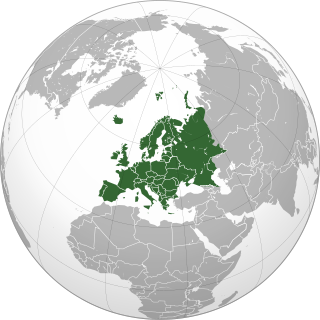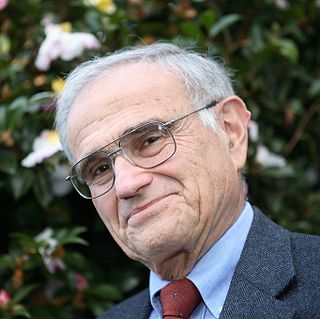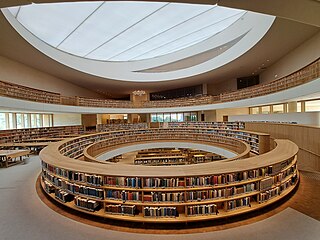Related Research Articles

Orthodox Judaism is the collective term for the traditionalist branches of contemporary Judaism. Theologically, it is chiefly defined by regarding the Torah, both Written and Oral, as revealed by God to Moses on Mount Sinai and faithfully transmitted ever since.

Moses Mendelssohn was a German-Jewish philosopher and theologian. His writings and ideas on Jews and the Jewish religion and identity were a central element in the development of the Haskalah, or 'Jewish Enlightenment' of the eighteenth and nineteenth centuries. Born to a poor Jewish family in Dessau, Principality of Anhalt, and originally destined for a rabbinical career, Mendelssohn educated himself in German thought and literature. Through his writings on philosophy and religion he came to be regarded as a leading cultural figure of his time by both Christian and Jewish inhabitants of German-speaking Europe and beyond. His involvement in the Berlin textile industry formed the foundation of his family's wealth.

The Haskalah, often termed the Jewish Enlightenment, was an intellectual movement among the Jews of Central and Eastern Europe, with a certain influence on those in Western Europe and the Muslim world. It arose as a defined ideological worldview during the 1770s, and its last stage ended around 1881, with the rise of Jewish emancipation.

Jewish emancipation was the process in various nations in Europe of eliminating Jewish disabilities, e.g. Jewish quotas, to which European Jews were then subject, and the recognition of Jews as entitled to equality and citizenship rights. It included efforts within the community to integrate into their societies as citizens. It occurred gradually between the late 18th century and the early 20th century.

The history of the Jews in Germany goes back at least to the year 321 CE, and continued through the Early Middle Ages and High Middle Ages when Jewish immigrants founded the Ashkenazi Jewish community. The community survived under Charlemagne, but suffered during the Crusades. Accusations of well poisoning during the Black Death (1346–53) led to mass slaughter of German Jews, while others fled in large numbers to Poland. The Jewish communities of the cities of Mainz, Speyer and Worms became the center of Jewish life during medieval times. "This was a golden age as area bishops protected the Jews, resulting in increased trade and prosperity."

Neologs are one of the two large communal organizations among Hungarian Jewry. Socially, the liberal and modernist Neologs had been more inclined toward integration into Hungarian society since the Era of Emancipation in the 19th century. This was their main feature, and they were largely the representative body of urban, assimilated middle- and upper-class Jews. Religiously, the Neolog rabbinate was influenced primarily by Zecharias Frankel's Positive-Historical School, from which Conservative Judaism evolved as well, although the formal rabbinical leadership had little sway over the largely assimilationist communal establishment and congregants. Their rift with the traditionalist and conservative Orthodox Jews was institutionalized following the 1868–1869 Hungarian Jewish Congress, and they became a de facto separate denomination. The Neologs remained organizationally independent in those territories ceded under the terms of the 1920 Treaty of Trianon, and are still the largest group among Hungary's Jews.
Jewish political movements refer to the organized efforts of Jews to build their own political parties or otherwise represent their interest in politics outside the Jewish community. From the time of the siege of Jerusalem by the Romans to the foundation of Israel the Jewish people had no territory, and, until the 19th century they by-and-large were also denied equal rights in the countries in which they lived. Thus, until the 19th century effort for the emancipation of the Jews, almost all Jewish political struggles were internal, and dealt primarily with either religious issues or issues of a particular Jewish community.

David Friedländer was a German banker, writer and communal leader.

Daniel Itzig was a court Jew of Kings Frederick II the Great and Frederick William II of Prussia.

Jerusalem, or on Religious Power and Judaism is a book written by Moses Mendelssohn, which was first published in 1783 – the same year when the Prussian officer Christian Wilhelm von Dohm published the second part of his Mémoire Concerning the amelioration of the civil status of the Jews. Moses Mendelssohn was one of the key figures of Jewish Enlightenment (Haskalah) and his philosophical treatise, dealing with social contract and political theory, can be regarded as his most important contribution to Haskalah. The book which was written in Prussia on the eve of the French Revolution, consisted of two parts and each one was paginated separately. The first part discusses "religious power" and the freedom of conscience in the context of the political theory, and the second part discusses Mendelssohn's personal conception of Judaism concerning the new secular role of any religion within an enlightened state. In his publication Moses Mendelssohn combined a defense of the Jewish population against public accusations with contemporary criticism of the present conditions of the Prussian Monarchy.

The history of the Jews in Europe spans a period of over two thousand years. Jews, an Israelite tribe from Judea in the Levant, began migrating to Europe just before the rise of the Roman Empire. Although Alexandrian Jews had already migrated to Rome, a notable early event in the history of the Jews in the Roman Empire was the 63 BCE siege of Jerusalem.

Dorothea Friederike von Schlegel was a German novelist and translator.
Jewish assimilation refers either to the gradual cultural assimilation and social integration of Jews in their surrounding culture or to an ideological program in the age of emancipation promoting conformity as a potential solution to historic Jewish marginalization.
Aaron ben Zechariah Friedenthal of Jarosław, also known as simply Aaron Jarosław, was a Galician Maskilic writer, editor, and publisher. He was a member of Moses Mendelssohn's Biurist school of Biblical exegesis.

Ludwig Philippson was a German rabbi and author.
Jonathan M. Hess was an American philologist and literary scholar, who served as chair of the Germanic and Slavic Languages and Literatures Department and director of the Center for Jewish Studies at the University of North Carolina, Chapel Hill.

Michael Albert Meyer is a German-born American historian of modern Jewish history. He taught for over 50 years at the Hebrew Union College-Jewish Institute of Religion in Cincinnati, Ohio. He is currently the Adolph S. Ochs Emeritus Professor of Jewish History at that institution. He was one of the founders of the Association for Jewish Studies, and served as its president from 1978–80. He also served as International President of the Leo Baeck Institute from 1992–2013. He has published many books and articles, most notably on the history of German Jews, the origins and history of the Reform movement in Judaism, and Jewish people and faith confronting modernity. He is a three-time National Jewish Book Award winner.

Mordecai Aaron Günzburg, also known by the acronym Remag (רמא״ג) and the pen name Yonah ben Amitai, was a Lithuanian Jewish writer, translator, and educator. He was a leading member of the Haskalah in Vilna, and is regarded as the "Father of Hebrew Prose."
Tzvi Hirsch (Hartog) Sommerhausen was a German-born Dutch Jewish writer, poet, and translator. He was a central figure of the Haskalah in Holland.

Modern Jewish historiography is the scholarly analysis of Jewish history into the modern era. While Jewish oral history and the collection of commentaries in the Midrash and Talmud are ancient, with the rise of the printing press and movable type in the early modern period, Jewish histories and early editions of the Torah/Tanakh were published which dealt with the history of the Jewish religion, and increasingly, national histories of the Jews, Jewish peoplehood and identity. This was a move from a manuscript or scribal culture to a printing culture. Jewish historians wrote accounts of their collective experiences, but also increasingly used history for political, cultural, and scientific or philosophical exploration. Writers drew upon a corpus of culturally inherited text in seeking to construct a logical narrative to critique or advance the state of the art. Modern Jewish historiography intertwines with intellectual movements such as the European Renaissance and the Age of Enlightenment but drew upon earlier works in the Late Middle Ages and into diverse sources in antiquity.
References
- ↑ "David Sorkin". Yale Edu.
- ↑ Sorkin, David (2004). Assimilation and Community: The Jews in Nineteenth-Century Europe. Gallery. p. 3. ISBN 978-0521526012.
- ↑ Sorkin, David (2010). "Beyond the East–West Divide: Rethinking the Narrative of the Jews' Political Status in Europe, 1600–1750". Jewish History. 24 (3/4). Gallery: 247–256. doi:10.1007/s10835-010-9113-z. ISBN 978-0521526012. JSTOR 40864852. S2CID 55397970.
- ↑ "David Sorkin appointed to the Graduate Center". GC.
- ↑ "Revisiting Jewish Emancipation: Reform and Revolution". JHFC.
- ↑ "Tremendously influential, tremendously admired" historian Peter Gay dies at 91". Yale Daily News. 16 May 2015.
- ↑ The Religious Enlightenment: Protestants, Jews, and Catholics from London to Vienna. Princeton Press. 15 May 2011. ISBN 9780691149370.
- ↑ Caron, Vicky (1991). Reviewed Works: The Transformation of German Jewry, 1780-1840 by David Sorkin; Between France and Germany: The Jews of Alsace-Lorraine, 1871-1918. University of Chicago Press. JSTOR 40864852.
- ↑ Arkush, Allan (1997). "Review: Moses Mendelssohn and the Religious Enlightenment". Modern Judaism. 17 (2): 179–185. doi:10.1093/mj/17.2.179.
- ↑ Feiner, Shmuel. Reviewed Work: The Berlin Haskalah and German Religious Thought: Orphans of Knowledge by David J. Sorkin. JSTOR 1455534.
- ↑ "The Religious Enlightenment: Protestants, Jews, and Catholics from London to Vienna". Quest CDEC Journal. 3 April 2010.
- ↑ Sorkin, David (1998). Reviewed Work: Profiles in Diversity: Jews in a Changing Europe, 1750-1870. Wayne State University Press. ISBN 9780814327159.
- ↑ Hakak, Lev (2003). "New Perspectives on the Haskalah (review)". Muse JHU. 21 (3): 178–180. doi:10.1353/sho.2003.0018. S2CID 170438753.
- ↑ What History Tells: George L. Mosse And The Culture Of Modern Europe (review) (ACLS Humanities E-Book). 24 July 2021.
- ↑ Sorkin, David (2002). The Oxford Handbook of Jewish Studies. OUP Oxford. ISBN 9780199280322.
- ↑ "The Religious Enlightenment: Protestants, Jews, and Catholics from London to Vienna (review)". Quest Journal. 3 April 2010.
- ↑ Arkush, Allan (1997). "New Perspectives on the Haskalah (review)". Muse JHU. 17 (2): 179–185.
- ↑ Sorkin, David (15 May 2011). The Religious Enlightenment: Protestants, Jews, and Catholics from London to Vienna David Sorkin. Princeton University Press. ISBN 9780691149370.
- ↑ "Reviewed Work: The Religious Enlightenment: Protestants, Jews, and Catholics from London to Vienna by David Sorkin". Central European History. JSTOR 40600983.